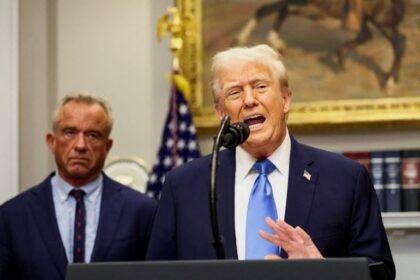Heightened Tensions: AOC and White House Aide Engage in Social Media Sparring
The ongoing immigration debate in the United States has taken a personal turn, as a recent exchange between Representative Alexandria Ocasio-Cortez and White House communications director Steven Cheung has captured public attention. This incident not only highlights the contentious nature of political discourse today but also underscores the personal attacks that often accompany it.
The Exchange: AOC’s Initial Jibe
The back-and-forth began when Ocasio-Cortez, a prominent figure in the Democratic Party and known for her progressive stance, took to social media to mock Stephen Miller, a key aide in the Trump administration. During an Instagram Live session, she described Miller as a “4’10” clown,” suggesting that his height was a reflection of his character. “I’ve never seen that guy in real life, but he looks like he’s, like, 4’10”,” she remarked, adding that he seemed “angry” about his stature and directed that anger toward marginalized communities.
This comment was not merely a casual insult; it was a calculated jab aimed at Miller, who has been a polarizing figure due to his role in shaping the Trump administration’s hardline immigration policies. Ocasio-Cortez’s remarks were emblematic of her broader critique of the administration’s approach to immigration, which many view as draconian.
Cheung’s Response: A Personal Attack
In a swift and provocative response, Cheung took to X (formerly Twitter) to fire back at Ocasio-Cortez. He tweeted, “Sounds like @AOC is often used to the shorter things in life,” accompanied by a pinching hand emoji. This comment not only escalated the personal nature of the exchange but also drew attention to the often juvenile tactics employed in political discourse today.
Cheung’s retort reflects a broader trend in political communication, where personal attacks often overshadow substantive policy discussions. The use of social media as a platform for such exchanges has transformed the way politicians engage with one another and the public, often prioritizing sensationalism over meaningful dialogue.
Miller’s Defense: Height and Character
Miller, who is often viewed as the architect of the Trump administration’s immigration policies, also weighed in on the exchange. In an appearance on Fox News, he dismissed Ocasio-Cortez’s comments, stating, “Well, we knew that her brain didn’t work. Now we know that her eyes don’t work.” He further characterized her as a “walking nightmare,” suggesting that her public persona was detrimental to the Democratic Party.
This response highlights the defensive posture often adopted by political figures when faced with criticism. Rather than addressing the substance of Ocasio-Cortez’s critique regarding immigration policy, Miller chose to focus on personal attributes, thereby diverting attention from the pressing issues at hand.
The Broader Context: Political Discourse in America
This incident is not an isolated one; it reflects a broader trend in American political discourse where personal attacks have become commonplace. The rise of social media has amplified this phenomenon, allowing for rapid dissemination of insults and jabs that often overshadow policy discussions.
Historically, political debates have included personal attacks, but the immediacy and reach of social media have transformed these exchanges into a spectacle. The 2016 presidential election, for instance, was marked by a series of personal insults exchanged between candidates, setting a precedent for the current political climate.
The Role of Social Media in Political Engagement
Social media platforms have become battlegrounds for political discourse, where brevity often trumps depth. Politicians and their aides frequently engage in exchanges that prioritize wit and sarcasm over substantive discussion. This trend raises questions about the future of political engagement in the United States.
As political figures increasingly resort to personal attacks, the potential for meaningful dialogue diminishes. The focus shifts from policy to personality, leaving voters to navigate a landscape where the lines between entertainment and governance blur.
Conclusion: A Reflection on Political Civility
The exchange between Ocasio-Cortez and Cheung serves as a microcosm of the current state of American politics. As personal attacks become more prevalent, the challenge remains for politicians to engage in civil discourse that prioritizes policy over personality.
While social media offers a platform for rapid communication, it also poses risks to the integrity of political dialogue. As the nation grapples with pressing issues such as immigration, it is imperative for leaders to rise above personal jabs and focus on the substantive challenges facing the country. The future of political engagement may depend on the ability of leaders to foster a culture of respect and civility, even amidst the heat of debate.










